Winter camping is not for the faint of heart but is a beautiful experience when your tent is blanketed in the snow while you are cozying up to a warm campfire. But what happens when all the food you brought on your camping trip freezes?
Luckily, there are helpful ideas to keep food from freezing camping in the winter. We will also look at the best foods to bring along and even ways to prep your food in advance in case it does freeze.
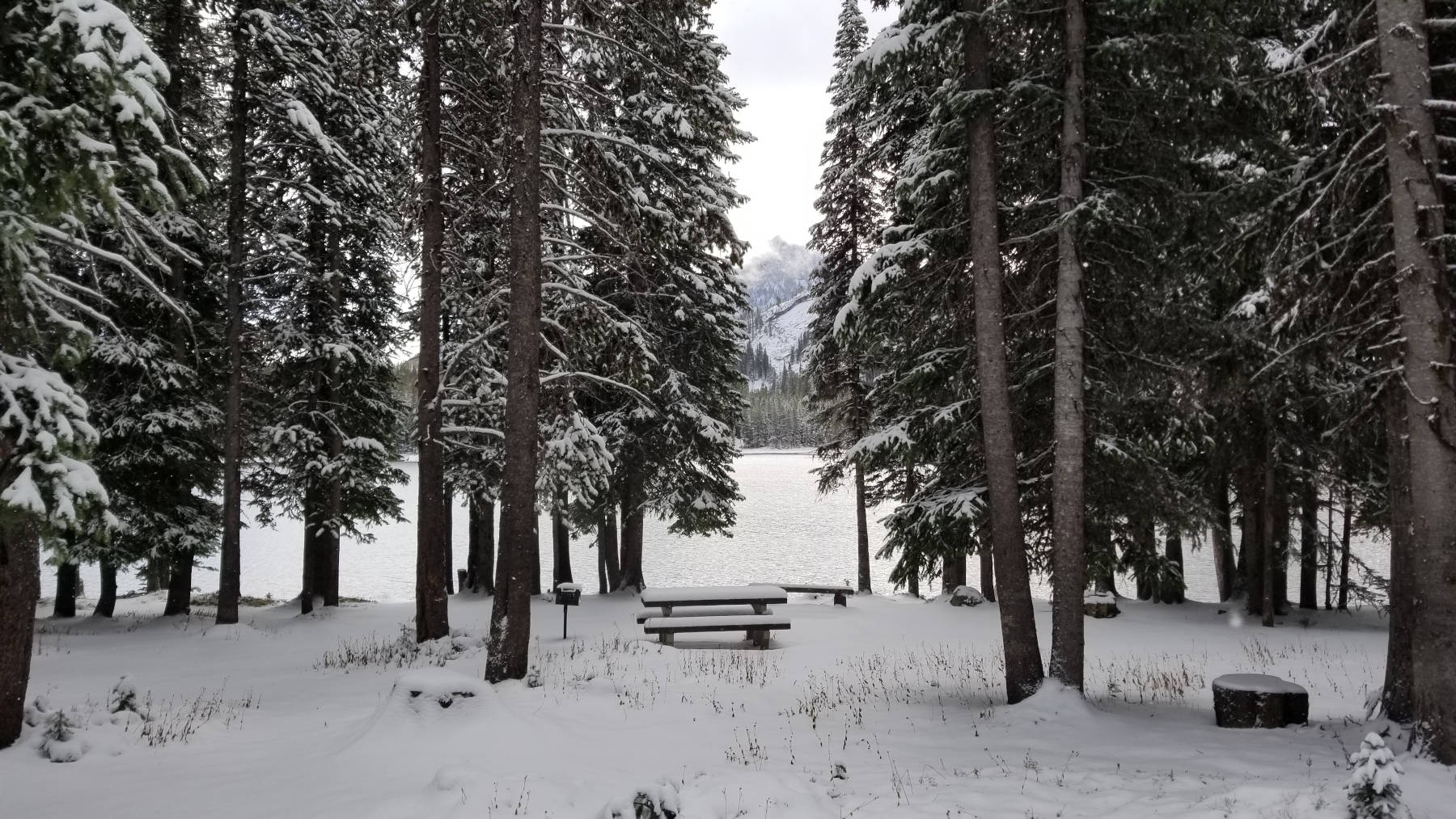
Pre Trip Prep
Preparing food at home before a camping trip can be very beneficial no matter the season, but it is especially important if you are cold-weather camping.
Let’s take a look at some pre-trip prep tips for your outdoor adventure that work even when your food does freeze.
Use Parchment Paper
Parchment paper provides a non-stick surface that acts as a barrier if some of your prepared food freezes. For example, pre-slice the cheese and cold meats you want to bring with you and place wax paper (parchment) between them.
This helps if either freezes because they won’t stick to the paper, and you don’t end up with a big block of frozen food when you need a snack.
Bag Your Eggs
Who doesn’t like the idea of waking up in the woods and enjoying a nice warm plate of scrambled eggs? Here is a tip that can keep your breakfast meal prep at the campsite mess-free with no eggshells and acts as a proactive method that works even if your eggs do freeze!
While still at home, crack eggs into a Ziploc bag, double bag it, and store it properly. Once you are at the campsite and ready to eat, place the frozen bag of eggs into a boiling pot of water until it liquefies, and then pour it into a pan to scramble.
Make Campfire Foil Packs
Foil Packs are a hassle-free meal on any camping trip. You can pre-make them before you head out, and the best thing is all you have to do is cook them over your campfire.
The foil will help insulate your food from the cold and hopefully keep it from freezing, but if not, don’t fear. The campfire will do the work.
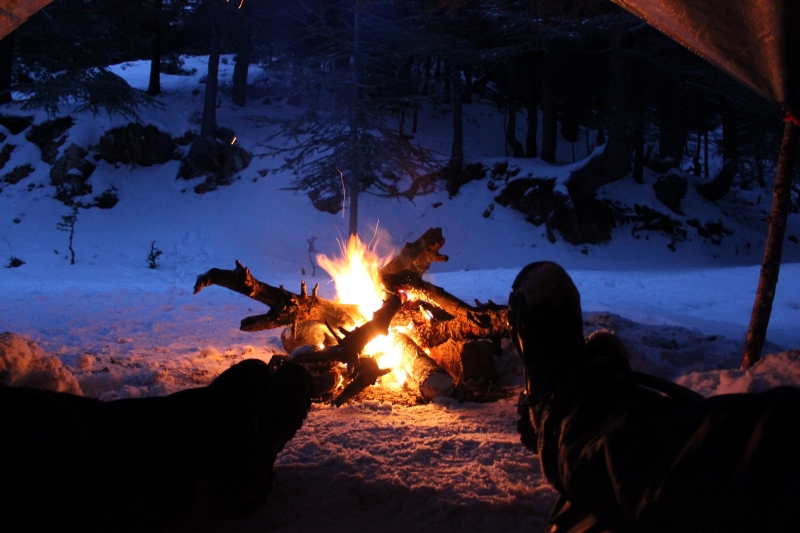
Will a Cooler Keep Food from Freezing in the Winter?
Yes, a cooler will help to keep food from freezing camping in the winter! Coolers are great insulators, whether that’s to keep your food cool in hot temperatures or help prevent food from getting frozen in colder temperatures.
If you’re in extreme cold temps, you need to consider additional layers of protection for your food. For example, bury your cooler in the snow, use winter hiking socks or sleeping bags to wrap food in, or place hot water bottles in your cooler overnight.
Food placement is also important in the cooler and you want to make sure to place an extra insulated barrier between any ice packs and food. Depending on the outside temperatures, you might not always use ice packs, but make sure to keep that in mind. That also applies to any frozen food you bring along with you from home.
If you landed on this article in the summer time we have some different tips to help you keep food cold while you’re camping when it’s not freezing out.
What to Do if You Don’t Have a Cooler
If you don’t have a cooler for your winter camping excursion or have the space for one, there are alternative methods to help keep your food from freezing. We have already discussed some items that can be used, like a blanket within a cooler, but the same can be done in a carrying bag if needed.
Keep in mind that these are short-term solutions.
Winter hiking socks and jackets: Winter apparel items are made with specific materials that have been tested to keep you warm, so they can help keep your food from freezing too.
Use winter socks and a cold weather jacket to wrap around or place between food items.
Warm water bottles: Use warm water bottles throughout your food to help keep the temperature from dropping too quickly. Just boil water and place it in a water bottle that can withstand hot temperatures.
Sleeping bags: Most sleeping bags are rated to a specific temperature, so while you aren’t using your bag – or maybe you have a spare – use it to help insulate your food, so it doesn’t freeze.
Mylar blankets: Mylar blankets are often used in emergencies where it helps reflect heat back to what is wrapped inside the blanket.
Try wrapping the mylar blanket around food you want to keep from freezing with a warm water bottle. If you plan to use this method, please don’t use the blanket out of your first aid kit – buy an extra mylar blanket.
How to Keep Water From Freezing Winter Camping
Winter camping has its challenges, and one is keeping your water from freezing. You might instantly think that a campfire can solve all problems, but what if you can’t get a fire started right away?
Not only do you need water for drinking, but also cooking, so let’s look at ways to keep your water from freezing.
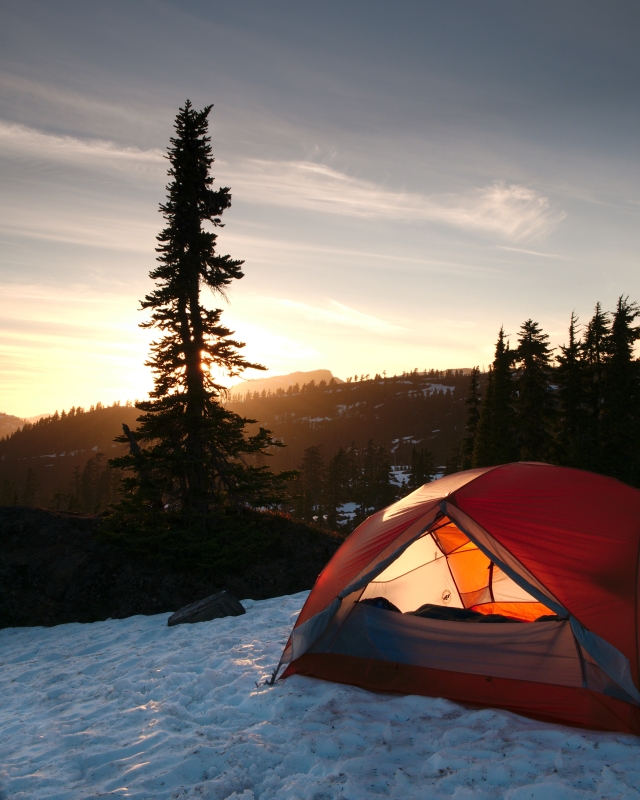
5 Campsite Hacks to Keep Your Food From Freezing
- Although you might think body heat and food go hand in hand to keep food from freezing, avoid doing this in your sleeping quarters. In other words – don’t keep food in your tent. Most bears might be hibernating in the winter, but mice and other rodents will find a way in, even if it involves chewing.
- Heat some water, pour it in a water bottle – a non-insulated stainless steel Nalgene water bottle is a good option – and put it in the cooler with your food. The hot water will help keep warmth in your cooler and help regulate the temperature inside.
- Wrap spare hiking socks or jackets around food items you want to keep from freezing. Do this with caution since you don’t want food liquids to ruin a pair of socks you plan on wearing on your camping trip.
- Use the sun’s heat to your best advantage. Place your cooler or any water jugs – dark color water jugs are even better – in the sunlight to keep things warm and thawed.
- If you are camping in the snow, keep any coolers or water jugs in snow. The snow will act as extra insulation to help prevent food or water from freezing temperatures.
Best Food for Winter Camping
Some foods are better meant for winter camping than others. Here are a few of our favorites that might help you decide what to put on your camping food menu.
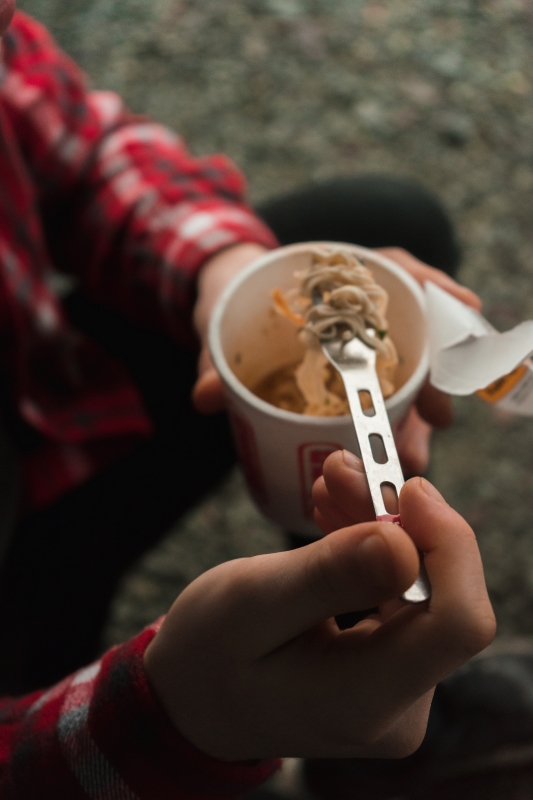
Freeze Dried Meals
Freeze-dried foods are an excellent option for an easy meal that only requires water. Of course, this means you will need to make sure to bring extra water along, so you aren’t tapping into your drinking supply.
The most challenging part is finding the meals you like the best, which usually involves a little trial and error. If you are interested in only eating “fresh” foods, a dried meal alternative is making your own dehydrated foods by using a dehydrator.
Some of the more popular options are dried fruit – like pineapple or banana chips – or different types of beef jerky.
Frozen Meals
Bringing along frozen meals from your home to the campsite can not only act like a temporary ice pack before exposing your cooler to the elements but also can take away the concern of it freezing because, well, it’s already frozen!
Good winter frozen meals are homemade chili or a tasty beef stew, and make sure it’s in a safe container to thaw in warm water.
Premade Foods
Chili and beef stew can also be pre-made food, but other options are campfire foil packets, pre-sliced cheese and hard salami, or bannock mixes.
Instant Foods
I know not everyone is a fan of instant foods, but it is low maintenance because it usually only requires hot water. Instant oatmeal is a great breakfast idea, while instant potatoes can be a nice addition to your homemade stew.
Another tasty camping treat is ramen noodles in a cup. They aren’t known for their nutritional value, but instant ramen is an easy camping meal for winter since you don’t have to worry about it freezing.
If you are like me and need that extra boost of caffeine in the morning, look into different flavors of instant coffee you can brew without fire.
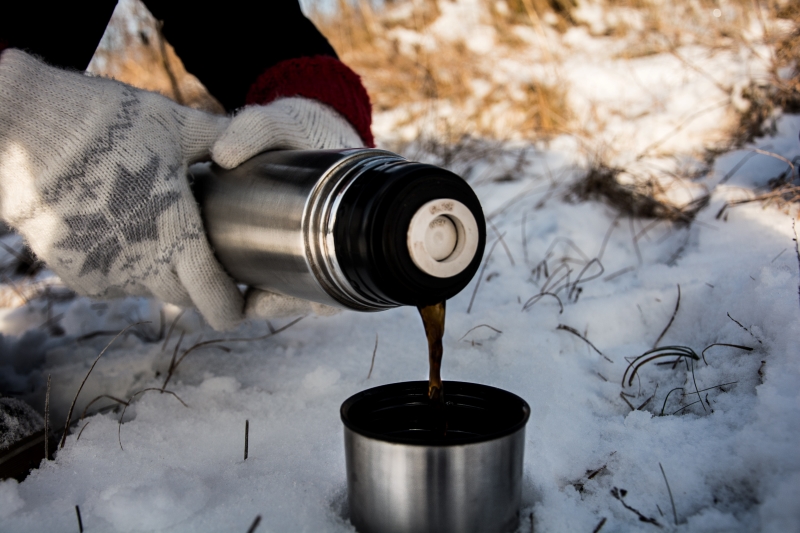
Wrapping It Up…
Camping in the winter involves planning, knowledge and a little guts.
Temperatures vary greatly depending on the location you are camping, so make sure to plan ahead, take proper precautions and don’t let your camping food or water freeze!
